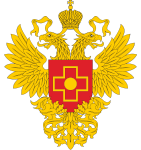
This article is an open access article distributed under the terms and conditions of the Creative Commons Attribution license (CC BY).
ORIGINAL RESEARCH
Specifics of reaction of human cardiovascular system to immersion in cold water
1 Saint Petersburg State University, St Petersburg, Russia
2 Lesgaft National State University of Physical Education, Sport and Health, St. Petersburg, Russia
3 Federal Research and Clinical Center for Sports Medicine and Rehabilitation of the Federal Medical Biological Agency, Moscow, Russia
Correspondence should be addressed: Mkrtych G. Ogannisyan
B. Dorogomilovskaya, 5, Moscow, 121059, Russia; ur.abmftrops@gmnaysinnago
Funding: the study was conducted as part of discharging work duties at the St. Petersburg State University.
Author contribution: Baranova TI — article conceptualization, authoring, general editing; Rybyakova TV — article conceptualization, general editing; Dmitrieva MO — search for and analysis of sources, statistical data processing; Anisimov DA — search for and analysis of sources, compilation of tables, preparation of figures; Tarasova MS — search for and analysis of sources, article authoring; Ogannisyan MG — selection of approaches to mathematical modeling and their optimization.
Compliance with the ethical standards: the study was conducted in accordance with the Helsinki Declaration and approved by the Human Research Ethics Committee (Minutes #40 of March 07, 2012). All subjects were familiarized with the test protocol and signed an agreement to participate therein.
Winter swimming implies extreme cold stress, which can cause respiratory disorders, arrhythmias, and elevated blood pressure even in generally healthy people. Pre-training examinations for athletes practicing winter swimming should include additional criteria evaluating reaction of the cardiovascular system (CVS) to cold water. This study aimed to determine the risk of pathological abnormalities in the examined individuals exhibiting different CVS reactions to immersion in cold water. We assessed reactivity of CVS with the help of a cold-hypoxic test (CHT), following a previously developed algorithm. The subjects of the analysis were CVS reactions to CHT and physical data collected after swimming in cold water. The study involved 255 female and 205 male participants, all of them almost healthy, aged 18–25 years. They participated in testing in a laboratory setting. Poly-Spektr-8/E cardiograph was used to record ECGs, and GraphPad Prism 8 package for Windows 10 for statistical analysis. Findings: in highly reactive and reactive participants, CHT causes lengthening of the PQ interval, with its value in the initial state (IS) equal to 158 ± 7.2, and with CHT — 178 ± 9.1 (p < 0.01); in subjects of he paradoxical type, CHT, against the background of higher pulse, triggered increase of QTc, which in the IS was 405 ± 7.1, with CHT — 420 ± 7.5 (p < 0.05). As for blood pressure, on average, CHT made it grow, SBD by 17.4 ± 4.3 mmHg, DBP by 12.9 ± 3.1 mmHg (p < 0.05). Swimmers adapted to cold, when swimming in cold water, had QTc above normal in 50% of cases: e.g., if IS of QTc was 434 ± 24 s, after swimming it increased to 492 ± 25 s. After a 200 m swim at t = 1.5–2 °C, the average blood pressure in the group, compared to IS, increased, with SBD growing by 16.9 ± 3.1 mmHg, and DBP — by 12.3 ± 2.3 mmHg (p < 0.05). Having analyzed the data, we conclude that CHT can be the basis of additional criteria extending examinations for athletes seeking admittance to cold water swimming.
Keywords: hypertension, autonomic regulation, cardiovascular system, winter swimming, respiratory system, cardiac arrhythmias, intracardiac conduction, peripheral vasospasm